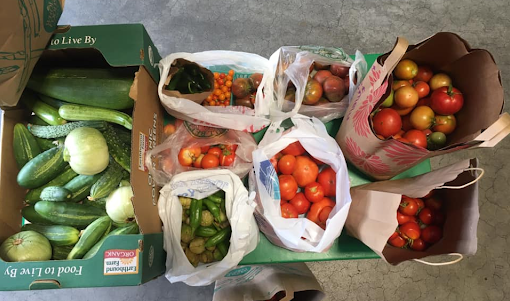Written by Kelly Chen, Education and Development Curriculum Intern
At Each Green Corner, our mission is to alleviate food insecurity through creating community organic produce gardens. You might wonder how a small organic garden can provide stability for many, but in fact organic gardens can actually be a path to food security. Growing organic food refers to growing produce without the use of pesticides, chemical fertilizers, or genetically modified produce. This leads to less pollution and a healthier environment for both the plants and people in the long-run. For more information about food security and organic foods, see our previous posts about the definition of food security and the benefits of organic food. Today, we’ll be discussing how organic food can contribute to food security.
Increasing Food Yields
Most people believe that organic agriculture leads to decreased food yields due to the absence of fertilizers and pesticides. Instead of using these chemicals, organic farming focuses on building up the crops’ natural resistance to pests and diseases that will increase crop productivity and yields in the long-term. Not using chemical fertilizers and pesticides also has benefits for the land that crops are grown on. Less damage to the land and environment decreases soil erosion and improves water uptake and retention. This, in turn, improves and increases future food yields. In addition to increasing the amount of food production, organic farming also diversifies the food available leading to a healthier diet for consumers.
Access to Local Food
By increasing local, small-scale organic food production, we can increase food security by creating more access to food resources. Creating gardens in urban areas, like the gardens Each Green Corner has created for our community, can help alleviate communities that live in food deserts, especially in lower income areas. Since organic farming is less intensive in its inputs due to the absence of pesticides and fertilizers, farmers do not need to invest as much money into their crops. This allows a wider range of people to grow their own crops and provide food for themselves and the people around them, creating more food security for their community. Organic farming has a more direct farm to consumer supply chain which creates more access to produce for people.

Each Green Corner works hard to increase our communities’ access to healthy and organic food to increase food security through our community gardens. We hope you will also look into organic farming as an opportunity to help alleviate food insecurity with us!
Sources:
“Organic Agriculture and Food Security”. IFOAM Organics International, (n.d.), Retrieved October 9, 2020, from https://www.ifoam.bio/sites/default/files/2020-03/foodsecurity2015_web.pdf.
Scialabba, N. E. (2007, May). “International Conference on Organic Agriculture and Food Security”. Food and Agriculture Organizations of the United Nations, Retrieved October 9, 2020, from https://www.researchgate.net/publication/337199546_ORGANIC_AGRICULTURE_AND_FOOD_SECURITY.



0 Comments